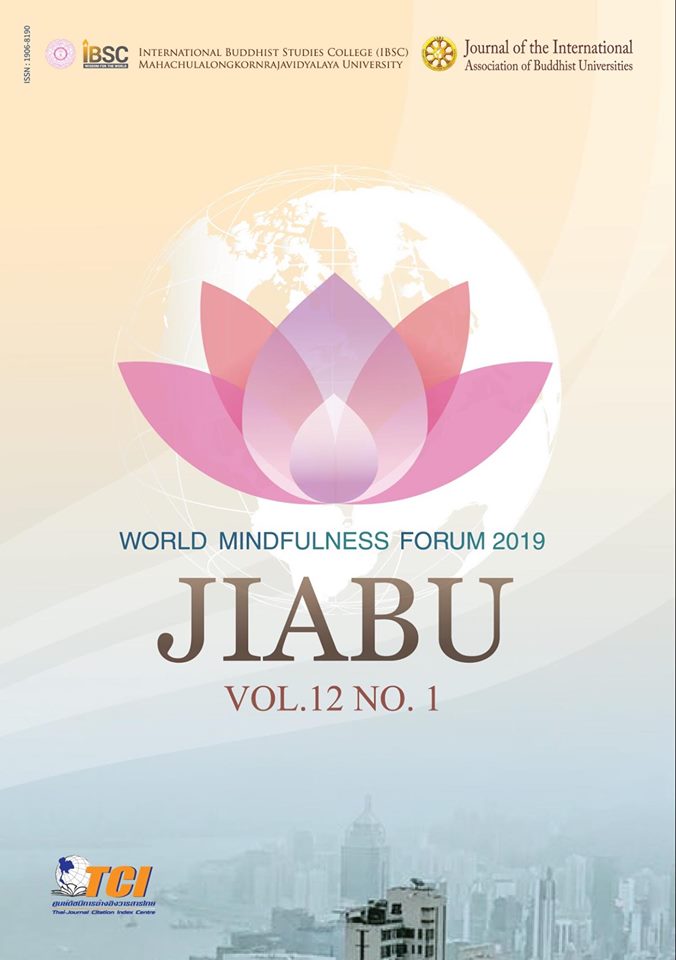The Beliefs and Practices of Making Holy Water in Theravāda Buddhism
Main Article Content
Abstract
In this article comprise the origin and development of making holy water in
Theravāda Buddhism and study the process of making holy water in Theravāda Buddhism
both Buddha’s time and present time. This examines how holy water influences the
Buddhist and their society. Firstly, the making of holy water in Theravāda Buddhism is
the Buddha’s strategy to make people get closer to religion practices; Water element is so
physically vital to all forms of life, the way of chanting sutta was introduced its pattern
until the chanting Paritta can heal people from mentally inside out, and with understanding
of the discourses in term of prevention, resolution, and therapy through recitation. The
evolution of the making holy water was the key to maintaining the moral support of the hearer
and Holy water must be connected to Dhamma water that is the core of Buddhism.
Article Details
Views and opinions expressed in the articles published by The Journal of the International Association of Buddhist Universities (JIABU), are of responsibility by such authors but not the editors and do not necessarily reflect those of the editors.
References
Buddhist Publication Society.
Ñānamoli, Bhikkhu (1991). The Minor Readings. Oxford: Pali Text Society.
Panyachaibangya, A. (2015). Buddhaparitta (Extended version). Chayamāngalaatthakakāthā.
Bangkok: Dhamasapa.
PhraKandhasarabhivamsa (2005). Phrapalitradhamma. Thailand. 16th edition. Bangkok:
Sumanapublishing.
PhraRajarattanarangsi (V.P. Veerayutto) (2016). Soo Dan Buddha Oong. India-Nepal. Buddha
Bibliography Study. Buddha Mission. Buddha-Dhamma from merit making travel.
Bangkok: Dhammasapa.
Piyadassi, T. (1999). The Book of Protection. Kandy: Buddhist Publication Society.
Piyaratana, W. (2017). Theravāda Buddhism. Bangkok: MCU Press.
SomdejPhrajaoBarommavongtherKromphyadamrongrajanupab (1966). The Chronicle of
Paritta. Bangkok: Mahamakutrajavidalaya.
Trainor, K. (2004). Buddhism The Illustrated guide. Oxford: Oxford Press.


